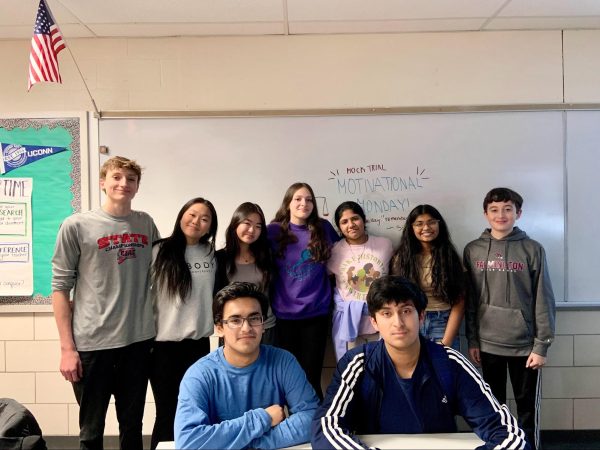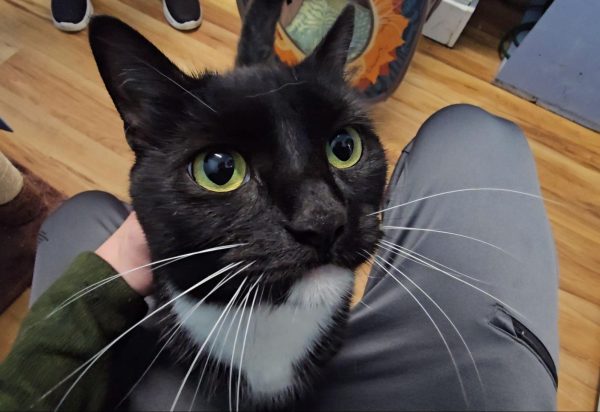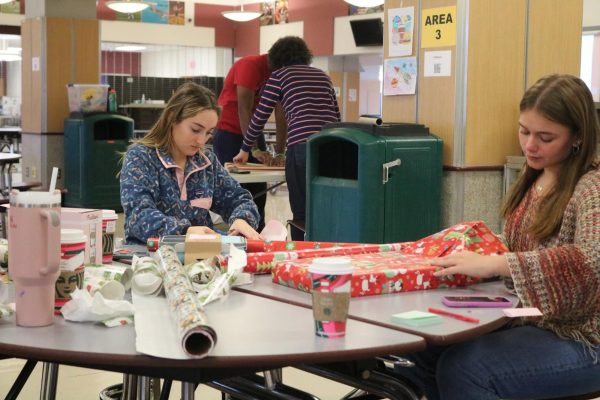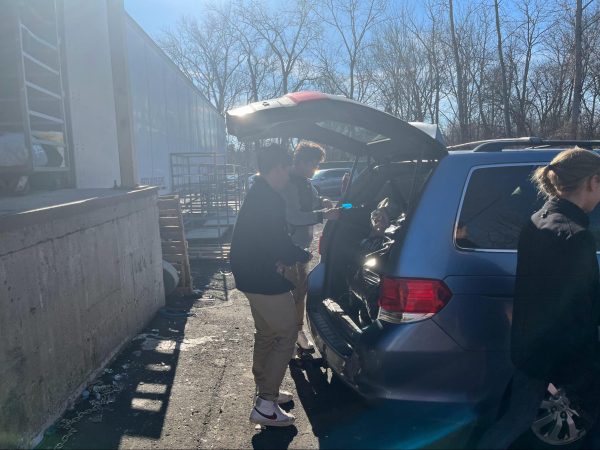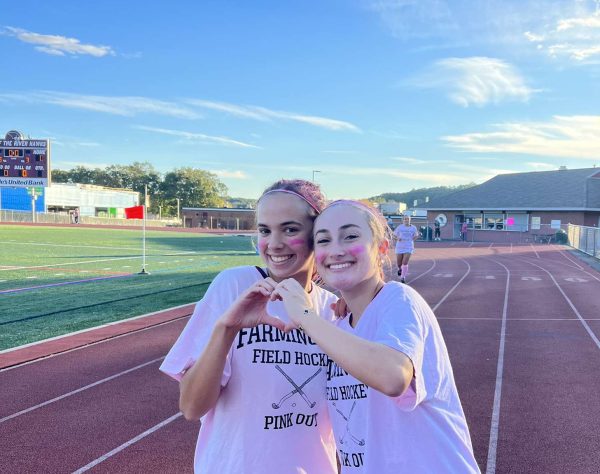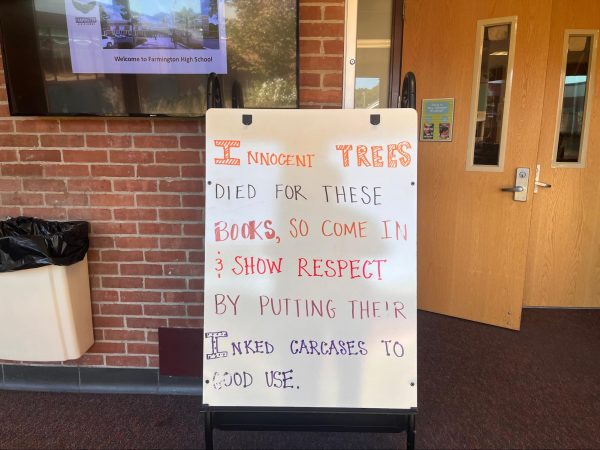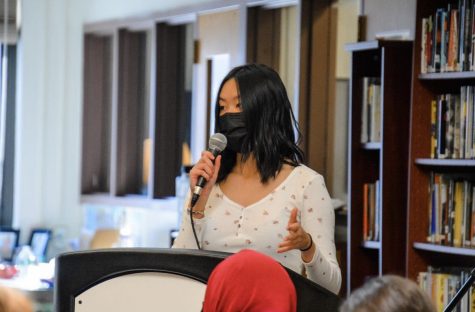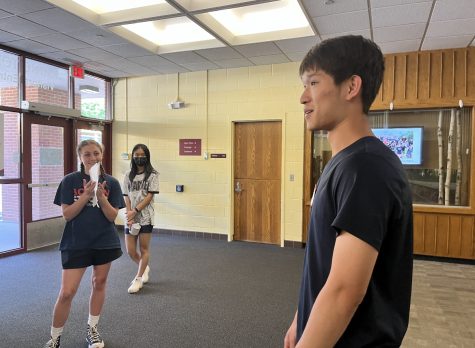Freshmen speak to Muslim activists, scholars
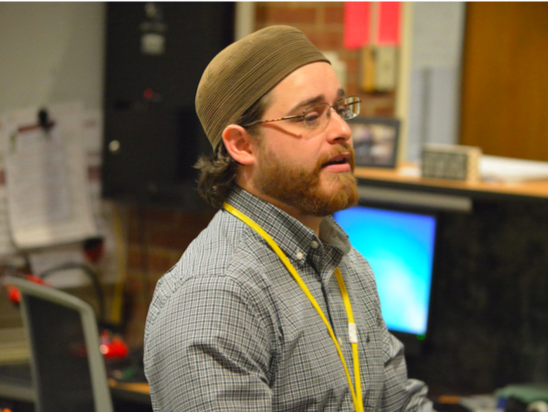
Talking with Taweel– Imam Omar Taweel speaks with freshmen about their studies of Islam. Taweel met with member of the freshman class in room 701 and answered their questions on the Sunni-Shia Schism. In addition to being a community activist, Taweel was the Youth Director at the Farmington Valley Islanic Center.
March 18, 2017
The freshmen class had a series of discussions with Muslim scholars, imams and activists in their history classes as a part of their unit on the Sunni-Shia Schism. There were three lectures in the library on March 8, two in room 701 on March 9 and Skype interviews that were conducted with experts on Islamic history in history classes throughout the week.
“The speakers that have been coming in have done a really good job at broadening the scope of the discussion to not just Sunnis and Shias, but to bringing in the ideas of in certain contexts and in certain places they’re speaking from the heart. Their body language, the way they move their hands, it gives it a human side. If you hear about it from an article, you’re just reading words,” freshman Farah Alfaraj said.
The Schism occurred after the death of the Prophet Mohammed in the seventh century, forming the two predominant sects of Islam today. The students reached out to scholars as a part of their study of the Sunni-Shia split; however, much of the conversation focused on the modern struggles and relations of Muslims.
“People who want to understand the world need to understand history and study history from the sources,” Imam Akram Azam said.
Assistant Professor of Contemporary Islam at the Hartford Seminary Timur Yuskaev, a Russian-born Tatar and who lived in a Russian town with a sizable Muslim majority for the first 19 years of his life, believes that conflict originates in proximity of different groups with conflicting interests, not religious doctrine.
“There is no such thing as an ongoing Sunni-Shia conflict. There are conflicts; there have been conflicts in different places and among different groups…these conflicts sometimes fall along religious lines but that does not mean that the conflict is ongoing and irreconcilable,” Yuskaev said.
Yuskaev did not just talk about the Sunni-Shia schism but conflict all over the world in general. His former student, Shia activist and educator Sister Nicole Correri agreed, citing discrimination against Catholics in the United States and conflict in Ireland as a few examples.
“This is not a new phenomena where we look at an outsider and question their beliefs, question their character… It’s easy to look at Ireland and assume that Catholics and Protestants can never get along,” Correri said.
One thing that came up in every discussion was the topic of Islamophobia, or prejudice against Muslims, particularly in the United States.
“If you look at the statistics on negative attitudes towards Muslims… the percentage has gone up, even in the last year. Right now, for the past two years, the most despised group of people are Muslims and atheists… Maybe these negative views are a sign of people being more visible in American social life,” Yuskaev said.
In addition to learning more about contemporary Islam, freshmen were able to explore the creative role that technology plays in modern research. Students were able to speak to scholars, imams and other notable experts on the Sunni-Shia Schism across the country using their school emails and a Twitter account that they made through their class.
“There are many layers to this task that are really important. The first is that we can use technology to break down the traditional barriers of the classroom, and that has been a really
powerful change… The second thing that’s been most powerful, I would say, is how students led this process,” Social Studies Department Leader Nichole Richman said.

